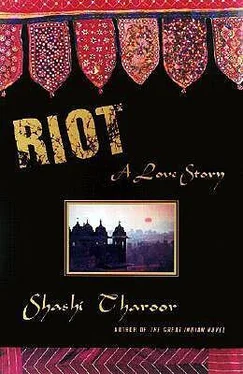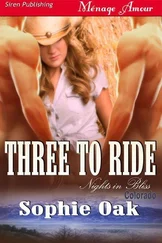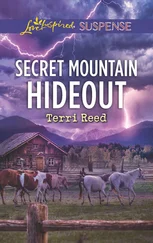“Maybe, maybe not. But look, yaar, all I’m saying is: don’t confuse bedding well with wedding bell. Look, screw her as much as you like. You’re doing it already. Why should you give up your job, your wife, your life, for that? As we say in Punjab, if you’re getting milk regularly, why do you need to buy the cow?” He grabbed me by the shoulders. “There’s a lot more to what you need in a woman than a good fuck. And there’s a lot more to your life than banging a moist you-know-what every once in a while.”
“Do you really think I don’t know that, Gurinder?” My tone was sad, but I wasn’t going to let him know how much his earthy candor had shaken me. “Of course I know what my responsibilities are, to Geetha, to my daughter, to my job, to my career, to this bloody district. But the point is precisely that Priscilla has come to mean so much to me that everything else pales in comparison.”
“Well, it damn well shouldn’t,” came Gurinder’s rejoinder. “Everything around you is real, dark, colored. She’s the only pale thing around in your life, Lucky. And you’re letting her cast a shadow she’s too bloody pale to cast.”
“Great metaphor, Guru.” I smiled tiredly. “And thanks for all your advice. I know it came from somewhere deep down that mudpit you call your heart. Now push off and interrogate some absconders. I need to think.”
As a parting gift I quote him the old ditty: “He who loves foolishly and well / Will meet Helen of Troy in Hell. / But she whose love is thin and wise / Will meet John Knox in Paradise.”
He’s not impressed. “Forget heaven and hell, yaar,” he says as he leaves. “It’s purgatory I’m concerned about. We call it Earth.”
from Lakshman’s journal
August 14, 1989
It’s midnight, and I can’t sleep. Tomorrow, though it’s a Tuesday, I won’t be seeing Priscilla, because it’s a public holiday: Independence Day. The day we threw off the yoke of the white man. The day I will be reminded, painfully, of my dependence on a white woman.
I can’t sleep because I’m thinking about her. And about myself. About whether I have a future with her. And about what that would mean for me.
What can I think about but the categories I know? We had a family friend, a friend of my parents, though closer to my mother’s age than my father’s. Uncle Sudhir, I called him, though of course he wasn’t really my uncle. He was an executive in a multinational firm, and I remember thinking of him as impossibly good-looking and glamorous, a fair, smooth-shaven demigod in sharp suits and glistening ties, his aquiline features always ready to break into a cheerful laugh. He had a gorgeous wife, too, whom he had met at university, a stunning woman in vivid saris and skimpy blouses. Over the years she became gradually more stately and less svelte, whereas Uncle Sudhir seemed to get younger and louder, favoring me with conspiratorial winks every time a pretty woman crossed his path at one of my parents’ parties. Then we moved to another city, and I didn’t see Uncle Sudhir for a while, until I heard, in my parents’ tones of shocked disapproval, that he’d got divorced. It was said that he was living with a younger woman, herself a divorcee.
Years later, when I was already working and had come to visit my parents on holiday, I met Sudhir again. He came to call on my father, and I saw a slightly jowlier, lower-shouldered version of the Uncle Sudhir I remembered. He was received in an awkward and uncomfortable manner. My mother barely greeted him before disappearing into the kitchen, and my father, who had if anything become garrulous in retirement, was much more taciturn than usual. I tried to make polite conversation but Uncle Sudhir could sense how things were; he made a couple of valiant attempts at joviality before giving up and leaving. When the front door shut behind him my father’s first words were: “Sad case.”
“Why?” I demanded in my mid-twenties innocence. “He doesn’t seem to be doing badly at all.”
“So that’s what you think,” my father said. “This was a man who had everything: a good salary, a beautiful wife, three healthy children, a wonderful home. Then he gave that all up to pursue his lust. He has suffered the diminishment of his status, lost the respect of friends and family, abandoned the sweet familiar comforts of home life, borne the stigma of social shame, and endured court-ordered financial impoverishment. Above all, he knows that in doing what he did he has spurned those in relation to whom he recognized himself. And you think he’s doing well?”
Later that week my father suffered the stroke that would kill him. This was almost the last thing he said to me, and it has stayed in my mind ever since, seared into my synapses.
Gurinder to Randy Diggs, over a drink
Saturday night, October 14, 1989
You want to know why I’m a cop? I’ll tell you why I’m a bloody cop.
Not why I first became a policeman, because that had more to do with my parents’ wishes. I really wanted to be a successful peasant, a modern peasant. But my parents convinced me that taking the IAS exams was the right thing to do, and I didn’t do well enough to get into the pissing IAS, so they offered me the IPS, the police service. And I took it. It was a job: it came with a decent salary, perks, buggers saluting me left and right, social status, that extra swagger in my dad’s step when he took me to the club on my weekends home. That’s why I first became a cop, but that’s not why I’m still a cop today.
How long’ve you been in this bloody country? Two years, huh? So you weren’t here for the really big story of the decade. The assassination of Indira Gandhi. And all that preceded it. And all that followed.
Nineteen eighty-four. Orwell’s big bad year. It all went buggering smoothly for the rest of the world, didn’t it? No great horrors, no Big Brother, no fucking Third World War. Lots of smug frigging articles about how Orwell?s dreadful vision of the future of the world had been belied by bloody reality. But not here. Our 1984 was as sisterloving awful a year as we’ve had since Independence. It’s right up there with the worst — with 1947, when the country was fucking ripped apart, and 1962, when the Chinese hammered the crap out of us in the Himalayas. Our 1984 was a bad shit year, all right, a terrible year for the bloody national vintage.
It began with the Punjab troubles going — as the Chandigarh whore said to the poet — from bad to worse. Some of my fellow Sikhs, stupid buggers to a man, were to blame. We had a mad preacher, Sant Jarnail Singh Bhindranwale, holed up in the holiest Sikh shrine, the Golden Temple in Amritsar, surrounded by assholes with rifles and Kalashnikovs and bombs, ranting about creating a new Sikh state called Khalistan. Motherloving idiots: one of the greatest of Sikh journalists, Khushwant Singh, wrote that if Khalistan were ever created it would be a “duffer state.” Bhindranwale was actually a creature of Indira Gandhi and her cronies, who wanted to undermine the moderate Sikh party, the Akali Dal, by encouraging a rival who was more fucking Sikh than they were, and then he’d gone out of control. But what do you care about all that, huh?
Anyway, Bhindranwale and his thugs were sending out goons to assassinate anyone they didn’t like, especially Sikhs who’d cut their hair or smoked cigarettes or disagreed with the separatists’ frigging agenda. And they were killing newspaper editors who criticized them, government officials, cops, you name it, nobody was safe, and because the killers were in a sacred sanctuary they were beyond the fucking reach of the long arm of the law. A Sikh cop I sort of knew and greatly admired, a deputy inspector general of police, A. S. Atwal, senior man, able, honest, came out of the temple after praying there with his eight-year-old son and was shot in the back. Killed just like that, outside the Golden Temple. Murdered in cold fucking blood, with his boy wailing in uncomprehending grief at his side. I’m a Sikh who’s never taken so much as a bloody trimmer to my nasal hair, I’ve prayed a hundred times at the Golden Temple, but even I could see we couldn’t just let them go on like this, in motherloving impunity. Law and order were going down the pissing tubes in my own bloody home state, man. People generally, Sikh and Hindu, didn’t feel safe anymore; something had to fucking well be done.
Читать дальше












